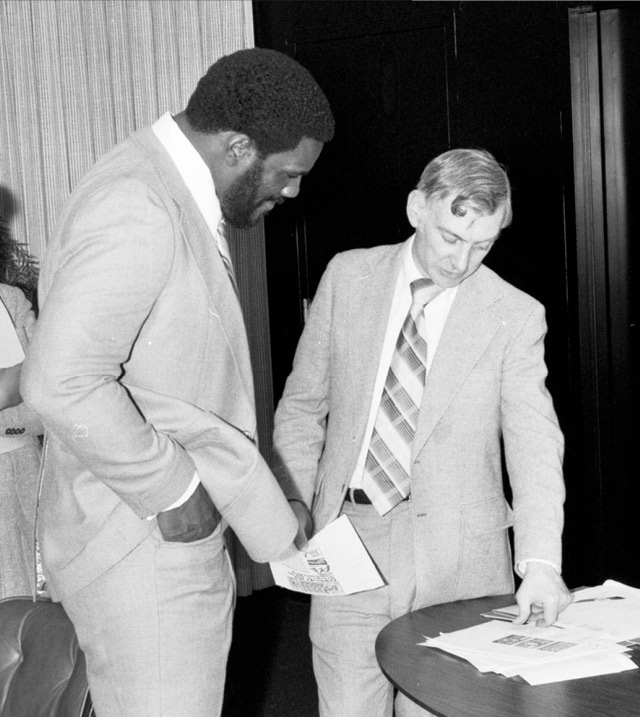It’s been a long time, but I still remember the day I met Dan Rooney. The Steelers had drafted me out of North Texas State in the first round in 1969, but I hadn’t signed yet. I came up to Pittsburgh with my agent and met Mr. Rooney, as I called him then, in the Steelers’ offices in the Roosevelt Hotel in the city’s downtown. We talked a bit, and he asked me what I was doing. I told him I had been working out, which actually wasn’t true. I had been holding out since the draft, and I wasn’t exactly in shape. I don’t think I fooled him.
After we figured out my contract and Mr. Rooney’s father, Art, gave me a cigar — which I still have — I drove to training camp with Dan, whom I now refer to as “the Ambassador” in honor of his time as the U.S. envoy to Ireland as well as his role as a great representative of the NFL and of his home, Pittsburgh. I was pretty quiet during the trip, but the Ambassador filled the silence by telling me how much I would love Pittsburgh, although, knowing I was from Texas, he did mention that it occasionally got cold in western Pennsylvania.
I remember thinking how young he was at the time, and that he seemed genuinely interested in talking to me. Believe me, on that summer afternoon in 1969, I could not have imagined that one day Dan Rooney would ask me to present him when he was inducted into the Pro Football Hall of Fame in Canton, Ohio.

